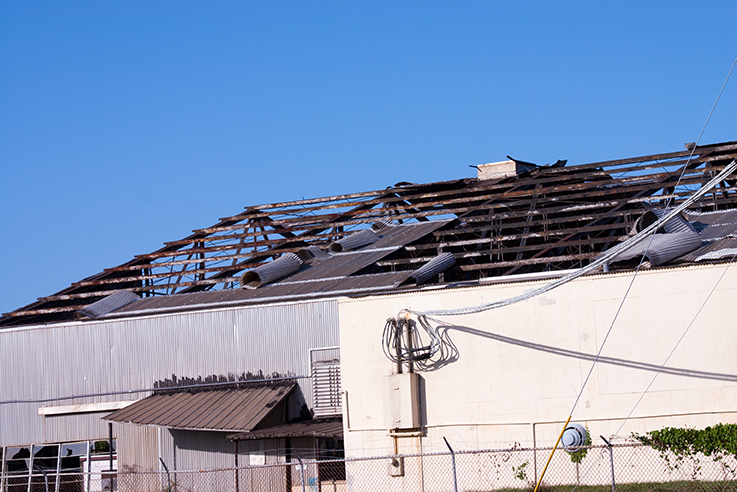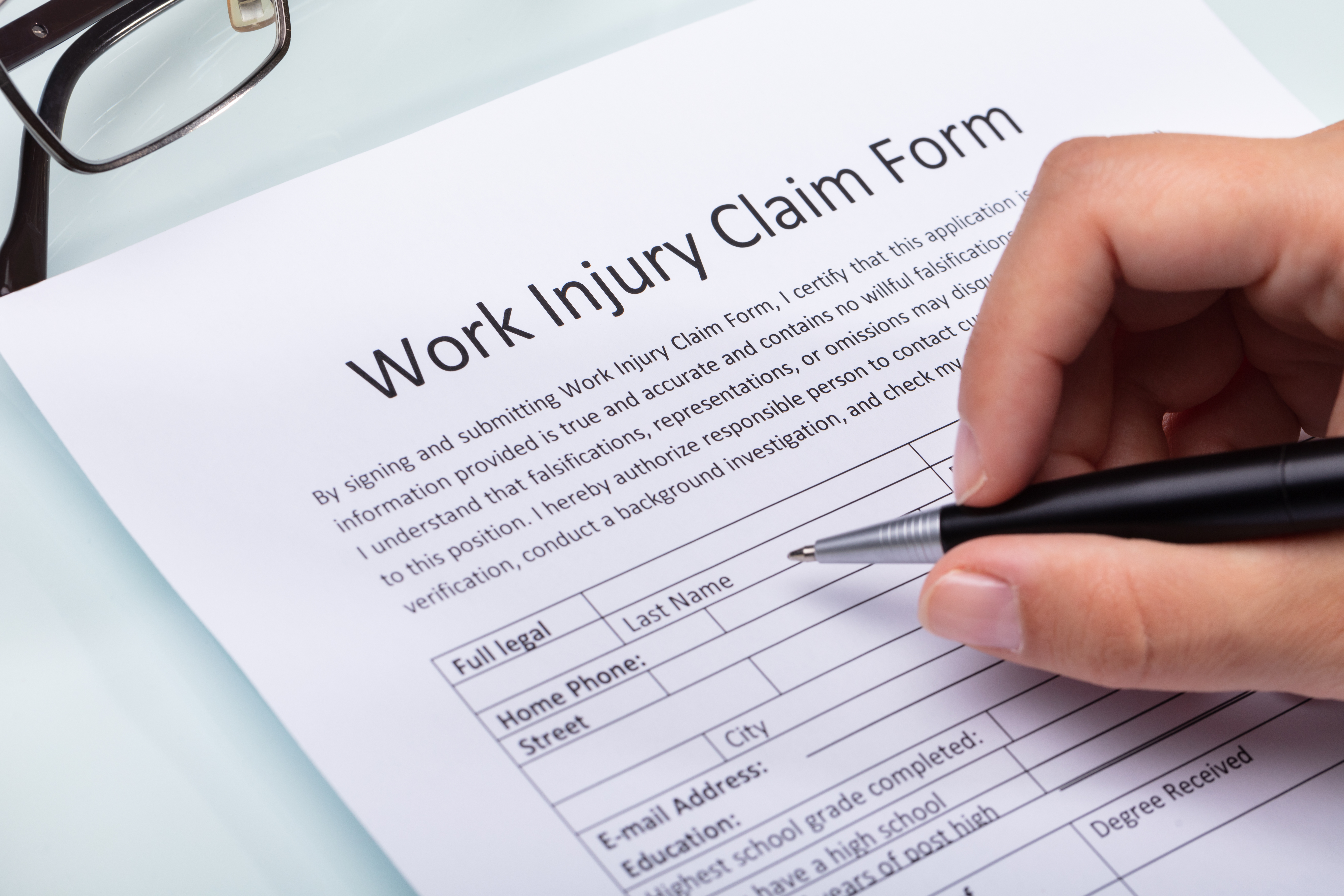WHY IS COMMERCIAL INSURANCE SO IMPORTANT?
Starting and growing a business requires hard work, sacrifice, and commitment.
Furthermore, businesses require significant time and financial resources to run optimally and realize their ultimate objectives. That said, protecting your investment from unforeseen events is necessary.
Business insurance provides an excellent cushion to business owners; getting one could be one of the best decisions you make for your business. It is vital for business owners to understand what commercial insurance is all about, including its benefits and the various commercial coverage available to small and large businesses.

Starting and growing a business requires hard work, sacrifice, and commitment.
Furthermore, businesses require significant time and financial resources to run optimally and realize their ultimate objectives. That said, protecting your investment from unforeseen events is necessary.
Business insurance provides an excellent cushion to business owners; getting one could be one of the best decisions you make for your business. It is vital for business owners to understand what commercial insurance is all about, including its benefits and the various commercial coverage available to small and large businesses.
COMMERCIAL USE INSURANCE EXPLAINED
Commercial insurance is liability coverage tailored for small businesses and corporations. It is designed to shield the business, its workforce, and other stakeholders from financial loss arising from unprecedented events. Property damage, vandalism, theft, employee injuries, and lawsuits present a big risk to business continuity. A commercially insured business will be protected from unplanned events for as long as the insurance policy is effective. Commercial business insurance is available in a broad range of customizations to cater to the unique needs of each business.
While you can choose from many forms of commercial coverage, the nature of your business should be the first factor you consider when seeking an insurance policy. With a suitable insurance policy, your business will be better positioned to ride out economic shocks and other risks that could threaten its continuity. Besides protecting their financial interests, business owners can explore insurance policies to safeguard their business reputation.
What is the difference between commercial and personal insurance?
Insurance, whether personal or commercial, is meant to cushion you from loss for things that are valuable to you. From vehicles to buildings, insurance can compensate the owner fully in case of an unfortunate event that is covered by the original policy. Commercial and personal insurance are two common options offered by most insurance companies to cushion investors from loss.
The Insured
For personal insurance policies, the insured can be an individual, a couple, or a family seeking insurance for personal property. Under commercial coverage, the insured party is usually an entity such as a registered company, partnership, or sole proprietorship. Regardless of your business structure, the insured party is the business. However, a commercial insurance policy can cover multiple entities in situations where a parent company has several subsidiaries.
The Subject Matter
The subject matter for a personal insurance cover could be a house, a personal car, or a family medical cover. Personal insurance often includes medical cover, life insurance, homeowner’s plan, and disability cover. Commercial policies are mostly geared to protect properties and structures primarily used for business purposes.
HOW COMMERCIAL COVERAGE WORKS
Monthly Premiums
Once the insured and the insurer have agreed on the insurance policy, the insured will make regular payments to the insurer, known as premiums. How much your business pays as premiums will be determined by the type of business, size, workforce, location, and industry risk factors.
Deductibles
Besides premiums, the insured also pays deductibles before claims processing. Some commercial policies attract high deductibles, which translates to lower monthly premiums but a higher expense in case of an event.
Policy Limits
A typical commercial protection policy will designate a payout limit which places a ceiling on how much the insurer can pay out during the duration of the policy. The payout limit varies depending on unique business aspects such as type, size, and operating risk factors. Limits can range from thousands to millions of dollars.
Policy Exclusions
Policy exclusions refer to items not covered by a standard business insurance policy. A good insurance agent should explain what your policy covers and where it falls short. Knowing the possible gaps will help you decide on a suitable policy and whether you should take additional cover.
TYPES OF COMMERCIAL COVERAGE
Business insurance covers many stakeholders, from business owners to employees. The most popular forms of business insurance are property insurance, employee compensation, and liability insurance.
Property Insurance
Property insurance refers to a broad term of policies that protect property owners from financial loss or liability. Property owners and renters with this insurance coverage will receive compensation if a building and other structures are damaged by fire or vandalism. It also shields the property owner from weather-related perils like hail, floods, wind, lightning, and smoke damage. A typical property insurance cover can encompass multiple policies ranging from flood insurance, and homeowner cover. However, like general liability cover, property insurance doesn’t cushion the property owner from all events. Generally, mold, earthquake, and tsunami damage are not covered under property insurance. Property owners seeking protection from such events may need additional policies.


Liability Insurance
Suppose a competitor files a lawsuit against your company for a copyright infringement that neither you nor your employees were aware. General liability policies shield your business from losses arising from lawsuits and other third-party claims. If a client slips and suffers injury from a wet floor and cites negligence by the company, a liability cover will cater to lawsuit expenses. Liability insurance will cater for all payouts to insured third parties if your business is deemed liable.
However, it’s important to note that a general liability policy does not cover intentional negligence and flouting contractual liabilities with third parties. General liability insurance policies apply to anyone who operates a business, a car owner, and any other person or entity who is suable for injuries and damages.


Employee Compensation
Employee compensation insurance, commonly known as worker’s comp, offers compensation and benefits to workers who fall ill or sustain an injury while at work. Worker’s compensation provides the following range of benefits to your workforce:
- It covers hospitalization and treatment
- Compensates for lost wages arising from time off work and recovery after illness or injury
- Compensation in case of disability and incapacitation
- Provides death and funeral benefits to help cater for funeral expenses whenever workers lose their life while at work
Taking an employee compensation cover may seem unnecessary for small and medium business owners due to the extra costs involved. Without a worker’s compensation plan, an employer becomes vulnerable to punitive lawsuits and astronomical hospital bills, which may run into tens or hundreds of thousands of dollars.


Commercial Auto Insurance
A commercial auto insurance policy becomes somewhat of a necessity if your business relies on vehicles for day-to-day operations. A vehicle is considered to be a commercial car and is used for either of the following purposes:
- Transporting work equipment and tools used in the ordinary course of business
- Ferrying customers and employees
Commercial coverage will also benefit small business owners who use personal vehicles besides the usual commute to work. Commercial auto policies typically cover any vehicle used for business purposes, such as delivery vans, trucks, company cars, forklifts, and other heavy-duty automobiles.
Commercial auto insurance offers the following range of benefits:
- Caters for lawsuits for damages caused by company cars to other people
- It caters for medical expenses arising from accidents caused by company cars
- It offers collision coverage which essentially fixes company cars after damage caused by other vehicles
- Compensates the business owner in case of car theft or vandalism
Some states require business owners to take up commercial auto insurance if they have more than one vehicle in their company’s car fleet.


WHY IS COMMERCIAL COVERAGE SO IMPORTANT?
1. It is a legal requirement
Commercial business insurance is a mandatory requirement in most states. Running your business without an insurance policy leaves you vulnerable to many unforeseen events. For example, a client may sue your firm for worker negligence or even personal injury. A fire outbreak could easily wipe out your inventory. A cyber-attack could leak company and client information leading to reputation damage. Acquiring commercial coverage ensures compliance with local laws and saves you money and stress.
2. Covers your business against work-related injuries
Most states require a business to acquire workers’ compensation if they have more than one worker in their workforce. If a staff member suffers job-related injuries, the business insurance policy will settle the employee’s medical bills, cater for missed wages and provide funeral benefits in case of death.
3. Protects your clients
A business owner’s policy (BOP) is a commercial cover that helps business owners compensate their customers for financial loss or bodily harm at work. For example, if a customer files a lawsuit for a faulty or substandard product, your business insurance cover will compensate such customers for the loss. Similarly, a business insurance policy will cater to legal fees and penalties if your company has a data breach and confidential client information leaks.
4. Builds business credibility
Insurance policies offer many benefits besides safeguarding your assets. Insuring your business instills confidence among your clients, suppliers, and creditors that you are willing to protect their interests.
5. Requirement for contract agreements
As a business owner, you’ll inevitably enter into contracts with suppliers of materials or delivery of services. Business insurance is mandatory for many contracts, including loan agreements, property leases, and third-party agreements.
6. Peace of mind
Running your business without insurance is never worth the risk. The expense you incur in monthly premiums to your insurer protects your business from many unforeseen events. Letting the insurance company take care of claims against your business frees up a great deal of time and stress, allowing you to focus on growing your business.
7. Protects employers from personal liability
A business cover protects you as the business owner or employer from being personally liable for unfortunate business events.

TIPS FOR MAKING BUSINESS INSURANCE WORK FOR YOU
Understand your coverage needs
Deciding on the appropriate insurance cover becomes easier once you understand what each commercial policy offers. For example, it helps to distinguish between general liability, property insurance, employee injury, and other types of business insurance. Having a basic understanding of business insurance and how it works enables you to have a more fruitful engagement with an insurance agent and get the best deal for your business.
Choose a trusted and reputable insurance company
After understanding the insurance options available for your business, your next goal should be to find a reliable and trusted insurer who will meet your company’s needs. A good insurer should satisfy two main criteria. Firstly, the insurer should be able to offer insurance policies that are specific and relevant in your industry and for your business size.
Secondly, the insurer must have skilled and knowledgeable insurance agents who understand your industry’s risks. As your business expands, you’ll want to have confidence that your insurer will match your business needs. Therefore, it helps to work with insurers who have a reputation for protecting small, medium, and mature companies.
Quick claims processing
One of the biggest attractions of an insurer is the ability to investigate and process claims against the business in a timely fashion. Investigations involving commercial claims can be complicated, time consuming, and stressful for all parties. Insurers with a reputation for fast claims processing deliver value to their clients, allowing you to focus on core business matters.
Stay up-to-date with your commercial use coverage
Your business may grow or shrink depending on the economic outcomes. The challenges and opportunities you face will evolve, making it necessary to update your insurance policy. You should consult your insurance agent regularly, even where no significant events occur. Frequent contact helps your agent determine whether your current policy offers sufficient protection and whether an additional cover is necessary.